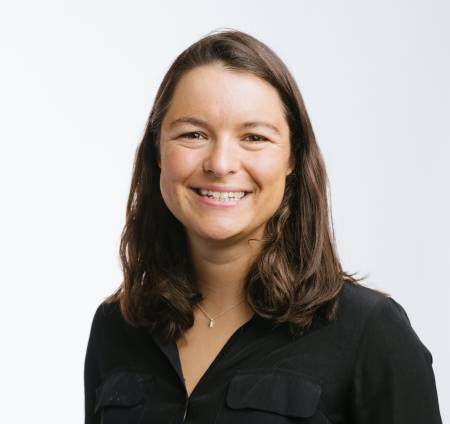Learning via Visual-Tactile Interaction
Abstract: Humans learn by interacting with their surroundings using all of their senses. The first of these senses to develop is touch, and it is the first way that young humans explore their environment, learn about objects, and tune their cost functions (via pain or treats). Yet, robots are often denied this highly informative and [...]
Carnegie Mellon University
Accelerating Numerical Methods for Optimal Control
Abstract: Many modern control methods, such as model-predictive control, rely heavily on solving optimization problems in real time. In particular, the ability to efficiently solve optimal control problems has enabled many of the recent breakthroughs in achieving highly dynamic behaviors for complex robotic systems. The high computational requirements of these algorithms demand novel algorithms tailor-suited [...]
Tactile SLAM: perception for dexterity via vision-based touch
Abstract: Touch provides a direct window into robot-object interaction, free from occlusion and aliasing faced by visual sensing. Collated tactile perception can facilitate contact-rich tasks---like in-hand manipulation, sliding, and grasping. Here, online estimates of object geometry and pose are crucial for downstream planning and control. With significant advances in tactile sensing, like vision-based touch, a [...]
RI Faculty Business Meeting
Meeting for RI Faculty. Discussions include various department topics, policies, and procedures. Generally meets weekly.
Resource Allocation for Learning in Robotics
Abstract: Robots operating in the real world need fast and intelligent decision making systems. While these systems have traditionally consisted of human-engineered behaviors and world models, there has been a lot of interest in integrating them with data-driven components to achieve faster execution and reduce hand-engineering. Unfortunately, these learning-based methods require large amounts of training [...]
What (else) can you do with a robotics degree?
Abstract: In 2004, half-way through my robotics Ph.D., I had a panic-inducing thought: What if I don’t want to build robots for the rest of my life? What can I do with this degree?! Nearly twenty years later, I have some answers: tackle climate change in Latin America, educate Congress about autonomous vehicles, improve how [...]
Complete Codec Telepresence
Abstract: Imagine two people, each of them within their own home, being able to communicate and interact virtually with each other as if they are both present in the same shared physical space. Enabling such an experience, i.e., building a telepresence system that is indistinguishable from reality, is one of the goals of Reality Labs [...]
R.I.P ohyay: experiences building online virtual experiences during the pandemic: what works, what hasn’t, and what we need in the future
Abstract: During the pandemic I helped design ohyay (https://ohyay.co), a creative tool for making and hosting highly customized video-based virtual events. Since Fall 2020 I have personally designed many online events: ranging from classroom activities (lectures, small group work, poster sessions, technical papers PC meetings), to conferences, to virtual offices, to holiday parties involving 100's [...]
Planning with Dynamics by Interleaving Search and Trajectory Optimization
Abstract: Search-based planning algorithms enable autonomous agents like robots to come up with well-reasoned long-horizon plans to achieve a given task objective. They do so by searching over the graph that results from discretizing the state and action space. However, in robotics, several dynamically rich tasks require high-dimensional planning in the continuous space. For such [...]
Physics-informed image translation
Abstract: Generative Adversarial Networks (GANs) have shown remarkable performances in image translation, being able to map source input images to target domains (e.g. from male to female, day to night, etc.). However, their performances may be limited by insufficient supervision, which may be challenging to obtain. In this talk, I will present our recent works [...]
Robots Should Reduce, Reuse, and Recycle
Abstract: Despite numerous successes in deep robotic learning over the past decade, the generalization and versatility of robots across environments and tasks has remained a major challenge. This is because much of reinforcement and imitation learning research trains agents from scratch in a single or a few environments, training special-purpose policies from special-purpose datasets. In [...]








